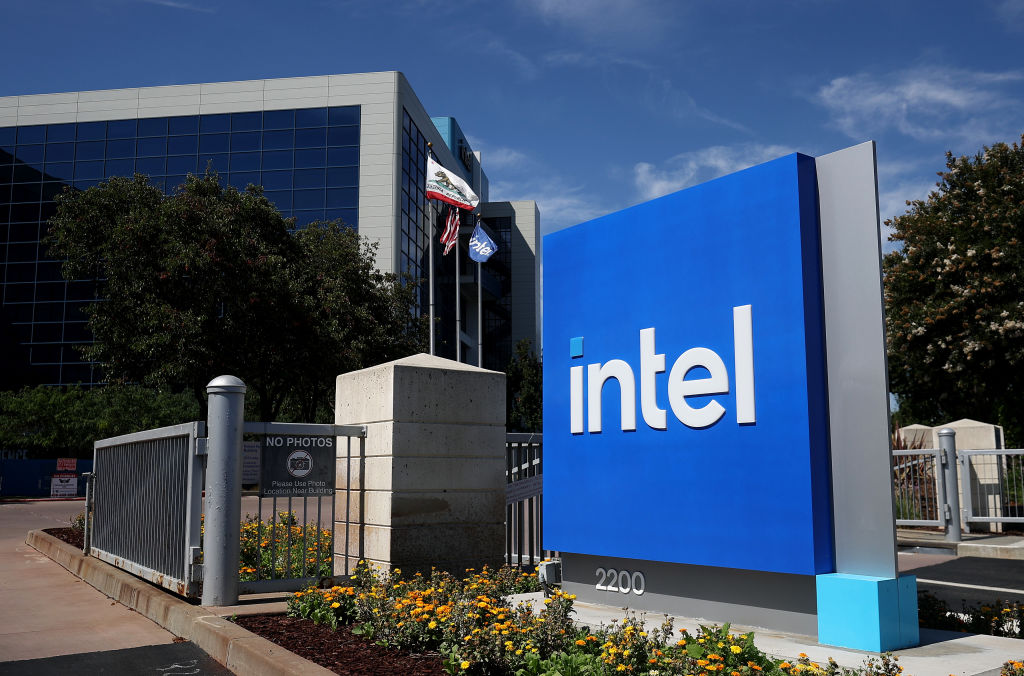5 Old Tech Stocks to Buy Now
Many once-overpriced tech stocks are downright cheap. Meanwhile, the hot new merchandise looks very dangerous.

Profit and prosper with the best of Kiplinger's advice on investing, taxes, retirement, personal finance and much more. Delivered daily. Enter your email in the box and click Sign Me Up.
You are now subscribed
Your newsletter sign-up was successful
Want to add more newsletters?

Delivered daily
Kiplinger Today
Profit and prosper with the best of Kiplinger's advice on investing, taxes, retirement, personal finance and much more delivered daily. Smart money moves start here.

Sent five days a week
Kiplinger A Step Ahead
Get practical help to make better financial decisions in your everyday life, from spending to savings on top deals.

Delivered daily
Kiplinger Closing Bell
Get today's biggest financial and investing headlines delivered to your inbox every day the U.S. stock market is open.

Sent twice a week
Kiplinger Adviser Intel
Financial pros across the country share best practices and fresh tactics to preserve and grow your wealth.

Delivered weekly
Kiplinger Tax Tips
Trim your federal and state tax bills with practical tax-planning and tax-cutting strategies.

Sent twice a week
Kiplinger Retirement Tips
Your twice-a-week guide to planning and enjoying a financially secure and richly rewarding retirement

Sent bimonthly.
Kiplinger Adviser Angle
Insights for advisers, wealth managers and other financial professionals.

Sent twice a week
Kiplinger Investing Weekly
Your twice-a-week roundup of promising stocks, funds, companies and industries you should consider, ones you should avoid, and why.

Sent weekly for six weeks
Kiplinger Invest for Retirement
Your step-by-step six-part series on how to invest for retirement, from devising a successful strategy to exactly which investments to choose.
At the close of the 1990s, virtually every technology stock was wildly overpriced. Many sold at price-earnings ratios (share price divided by earnings per share) of 100 or more. Others had no price-earnings ratios because they had no profits, and some of the sexiest stocks belonged to companies that didn’t even have any revenues.
Since the 1990s, a lot of these once-treasured outfits have gone out of business or have been absorbed by healthier companies. But a number of them have grown into much stronger businesses -- even as their stock prices languish far below their 1990s levels. The upshot: Many of the stocks that were ludicrously overvalued little more than a decade ago now change hands at enticing prices.
Meanwhile, the investment bankers who power Wall Street’s initial public offering machine have launched more tech stocks. Almost all of this sparkling new merchandise is just as insanely overpriced as the tech stocks of the late 1990s were.
From just $107.88 $24.99 for Kiplinger Personal Finance
Become a smarter, better informed investor. Subscribe from just $107.88 $24.99, plus get up to 4 Special Issues

Sign up for Kiplinger’s Free Newsletters
Profit and prosper with the best of expert advice on investing, taxes, retirement, personal finance and more - straight to your e-mail.
Profit and prosper with the best of expert advice - straight to your e-mail.
The technology sector is split between the good and the ridiculous. Referring to a popular tech-laden index, Grady Burkett, the associate director of technology analysts at Morningstar, says: “I wouldn’t want to own Nasdaq, but I’d own the low P/E, high-quality technology companies.”
Below are five “old tech” stocks that should enhance almost any portfolio. My next piece will discuss five tech stocks to sell -- quickly.
Cisco Systems (symbol CSCO) powers the Internet -- from the Wi-Fi routers in homes to switches and network-management software that permits huge computer networks to communicate. Yet the stock, at $20.36, trades at just 10 times estimated earnings for the coming 12 months. Cisco’s P/E in 1999 was 130. (Current share prices are as of the February 21 close.)
Cisco faces more competition than it once did, and management plainly made some blunders. But CEO John Chambers has corrected some of his mistakes. Plus, it’s expensive for companies to switch from Cisco’s products to those of a competitor. Cisco, incidentally, began paying a dividend last April. The stock yields 1.6%.
Following Hewlett-Packard (HPQ) over the past year has been like watching a soap opera. The company has abruptly made personnel shifts at the top, as well as shifts in direction.
But the company has a lot going for it. Best known for its printers and personal computers, Hewlett is gaining an increasing percentage of its profits from providing services to businesses, as well as data storage and networking. It will take a while for the company to fully regain its footing, but the stock, at $29.35, trades at less than 7 times estimated earnings for the year ahead. That’s too cheap to ignore.
You’d think Intel (INTC), the world’s largest manufacturer of microprocessors, would fetch a premium price. You’d be wrong. At $27.16, Intel trades at just 10 times estimated year-ahead earnings. That compares with a P/E of 33 in 1999. The stock today is about as cheap as it has ever been.
Intel has dominated semiconductors for decades because, with its enormous revenues, it can and does spend more on research and development than its rivals. Competition in chips is fierce, but Intel always seems to come out on top. Its biggest challenge currently: Microprocessors from ARM Holdings PLC power most mobile devices.
Microsoft (MSFT) gets no respect. The stock, at $31.44, trades at 10 times estimated earnings. But even though the personal computer industry is mature, the Windows operating system continues to generate enormous profits for Microsoft. So does Microsoft Office. Individuals may switch to cheaper or free products for their home computers, but the switching costs for businesses are high. Meanwhile, Microsoft also rakes in nice profits from its popular Xbox video game system. The big question marks are how well Microsoft can adapt to cloud computing and whether it can make a bigger splash in mobile phones.
Symantec (SYMC), the maker of Norton anti-virus programs, is a leading provider of security software to individuals and businesses. Symantec is also big in data storage. The company should continue to grow, albeit at a slower rate as the migration to cloud computing continues. But the stock, at $17.94, trades at 10 times estimated earnings. As with the other four stocks, the P/E is just too low to ignore.
Steve Goldberg (bio) is an investment adviser in the Washington, D.C., area.
Profit and prosper with the best of Kiplinger's advice on investing, taxes, retirement, personal finance and much more. Delivered daily. Enter your email in the box and click Sign Me Up.

-
 Ask the Tax Editor: Federal Income Tax Deductions
Ask the Tax Editor: Federal Income Tax DeductionsAsk the Editor In this week's Ask the Editor Q&A, Joy Taylor answers questions on federal income tax deductions
-
 States With No-Fault Car Insurance Laws (and How No-Fault Car Insurance Works)
States With No-Fault Car Insurance Laws (and How No-Fault Car Insurance Works)A breakdown of the confusing rules around no-fault car insurance in every state where it exists.
-
 7 Frugal Habits to Keep Even When You're Rich
7 Frugal Habits to Keep Even When You're RichSome frugal habits are worth it, no matter what tax bracket you're in.
-
 Trump's Economic Intervention
Trump's Economic InterventionThe Kiplinger Letter What to Make of Washington's Increasingly Hands-On Approach to Big Business
-
 Intel Earnings Do Little to Excite Investors: What to Know
Intel Earnings Do Little to Excite Investors: What to KnowIntel stock is struggling for direction Friday after the chipmaker reported a fourth-quarter beat but gave weak guidance. Here's what Wall Street has to say.
-
 Is Intel Stock a Buy, Hold or Sell After Earnings?
Is Intel Stock a Buy, Hold or Sell After Earnings?Intel stock is moving higher Friday after the embattled chipmaker gave upbeat Q4 guidance, but Wall Street is staying on the sidelines for now. Here's what you need to know.
-
 Intel Braces for an Even Tougher Road Ahead
Intel Braces for an Even Tougher Road AheadThe Kiplinger Letter Amid a long, costly turnaround, Intel resets expectations again. Its new woes raise questions about U.S. industrial policy and global chip competition.
-
 Why Your Electric Bill Will Keep Climbing
Why Your Electric Bill Will Keep ClimbingThe Kiplinger Letter There's no end in sight for energy rate hikes, so look for ways to curb your power use.
-
 Stock Market Today: Stocks Close Higher Ahead of Inflation Week
Stock Market Today: Stocks Close Higher Ahead of Inflation WeekBulls regained control ahead of next Tuesday's release of the October CPI report.
-
 Stock Market Today: Stocks End the Week on a High Note
Stock Market Today: Stocks End the Week on a High NoteIntel stock plunged after a big earnings miss, but encouraging inflation and consumer sentiment data created tailwinds for the broad market.
-
 Stock Market Today: Stocks Climb After Spotify Job Cuts
Stock Market Today: Stocks Climb After Spotify Job CutsSpotify became the latest company to announce layoffs, while Salesforce climbed on activist investor news.